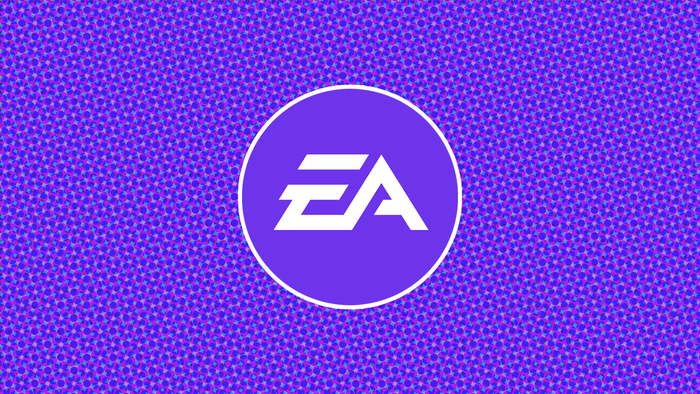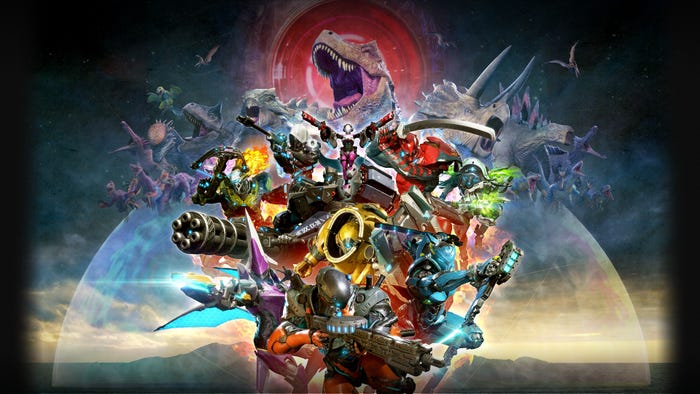Q&A: Flagship's Roper Talks Hellgate Pricing, Mythos
Gamasutra recently had a chance to chat with Flagship Studios' Bill Roper, quizzing him on topics including Hellgate: London's recently controversial hybrid subscription model, as well as the firm's new casual MMO Mythos and plans for the fu

Flagship Studios was founded in 2003 by David Brevik, Erich Schaefer, Max Schaefer and Bill Roper: ex-Blizzard North and Blizzard Entertainment executives instrumental in the development of titles like Warcraft, StarCraft, and the Diablo series. In March 2005, the company announced its first title, Hellgate: London, an RPG that takes inspiration from the Diablo series, but adds a first person view point. The title attracted some criticism from fans earlier this year after its revenue generation model was announced: in addition to free accounts for online play, it also offers a $9.95 a month Elite account which will give users additional updates, added item slots, 24-hour customer support, player vs. player arenas and ladders and a number of other benefits. Flagship also recently announced the formation of a Seattle studio, which is developing Mythos, a more casual title intended to function as a way of testing technology used in Hellgate: London. The company is yet to announce more details, but has revealed that the game will see release through its Ping0 digital distribution arm sometime in 2007. Gamasutra had a chance to speak to CEO Bill Roper recently, and asked about the company’s games, the controversy surrounding Hellgate: London’s pricing structure, and its intentions for Mythos. Why was Flagship Studios originally founded? Our original intention back in 2003 was not to leave Blizzard. We wanted some level of participation and direct communication with Vivendi’s home office in order to offer our insight, knowledge and desires as to their plans at the time in terms of a possible sale or IPO of the games unit. The level of uncertainty back then made it extremely difficult to plan for our futures, as well as the futures of our team members. And with no long-term compensation or employment contracts in place, we wanted to be able to interact directly with the people making the key decisions that could drastically affect our lives and workplace. In the end, Vivendi chose not to make that opportunity available and accepted our resignations over the matter. The next day, David Brevik, Erich Schaefer, Max Schaefer and I started Flagship Studios. How detailed a business plan did the company have at that point? We didn’t have a business plan when we left Blizzard since starting a new company wasn’t our original intention. We did quickly begin working on one, however, as well as coming up with the core idea and technologies behind Hellgate: London. At what point did design and development on Mythos and Hellgate: London begin? The design on Hellgate: London literally began that first day of the company as the four of us sat in Dave’s living room. This was our first official day as a new company, and we started throwing around ideas for a game. After a while, Dave proposed the central concept for Hellgate: London – to create a completely randomized RPG played from the first-person perspective. We tried to shoot holes in the idea to determine if it was a solid concept. When it stood up to this initial, brutal design review, we started talking about when and where the game would be set as well as more specific design concepts. The idea for Mythos came from a desire to create an easy, fun and compelling game through which we could test the online technologies we were building for Hellgate: London. Phil Shenk and Travis Baldree had the basic idea for the fantasy world and some of the different game mechanics, such as the map travel system. When the game hit the internal prototype stage, it was incredibly fun to play, so we put more people on it and Flagship Seattle was launched. Was there ever any concern about releasing the two games so close together? The games are so incredibly different in play style, look, mechanics and business models, we actually see them as being very complementary in the market. Hellgate: London will definitely appeal to the core gamer as well as the more casual player while Mythos is going to track about the reverse. What challenges did you face in developing the engine for Hellgate: London? Our biggest challenges were with creating our first 3D engine and then taking everything we knew about creating random, dynamically generated environments and applying that to a 3D space. Fortunately, the team took this as an exciting challenge and dove into it with a real zest. It makes me proud to see what they’ve accomplished and how well our technology stacks up against the leaders in the field – especially since our engine does many things no one else’s does. What kind of pressure do the high expectations for the game put on the development team? We put a lot of pressure on ourselves, so I don’t know if external expectations weigh as heavily on us as they might. There are a lot of perfectionists here that want Hellgate: London to be the best game we’ve ever worked on. We just hope that the gamers out there play and enjoy it as much as we do. Has the reaction to the Hellgate: London revenue generation model been a surprise? Somewhat, but that is mainly because – like the game itself – the model doesn’t fit neatly into a prescribed paradigm. We’re offering an amazing amount of value with Hellgate: London. Much more, in fact, than we did with the Diablo games. For the price of a single-player game, you also get a free secure online experience with many more features than we offered with Battle.net. Not only do you get to play the game with your friends for free, but we have guilds, auction houses, and a host of community and game play features we’ve never offered in the past. Unfortunately, I think some people believed they were somehow getting a lesser experience than subscribers out of the box, and that simply isn’t true. The subscription model is there for players who want more and are interested in enjoying a steady stream of continuing content. Our intention is always to over-deliver to our players, and with a subscription model we can constantly keep developers on the game and provide the long-term experience that they’ve shown us they want. Do you believe that the subscription model has pushed away possible users? Any decision you make can potentially turn away people. I don’t believe that once the community understood how much they were getting for their initial purchase that they would feel somehow ripped-off. It’s more than they got with Diablo II, for example, and we’re just a start-up! We’re doing everything we can to make our players happy and I do believe that the vast majority of them see that. Was there ever any discussion about using a model closer to the expansion pack model used for Diablo II? Do you believe this would have been more popular, and what inspired the decision to use a subscription model? The model of creating one expansion pack with no substantive updates before or after wasn’t going to make anyone happy. It certainly didn’t make the hundreds of thousands of Diablo gamers happy, as was evident in the volumes of emails we got begging for more expansions and content. We can be so much more fluid and responsive and interactive with our design through the ongoing content model as supported by subscriptions than putting our noses to the grindstone for 12 to 16 months. And in the end, maybe we can find a way to do both so that the dedicated online gamers and the single-player fans all get something. What place does Mythos hold in the overall business plan for Flagship? Mythos is a small “test” game that has evolved into a viable product because of the team’s excellent execution on the idea and the interest and need for a casual MMORPG. We’re looking more towards the way Asian companies distribute and market these styles of games, so making it on a budget and deadline that allows it to be free to download and free to play has been a major factor. Mythos has definitely risen to a place of importance in our overall plans. Were you surprised by the community reaction to Mythos? Not surprised as much as pleased. We knew the game was going to be incredibly fun when we got the first ‘real’ build form Travis and the crew up north. It was a real validation of the game when everyone who played it was raving about how fun it was. What kind of revenue generation model will Mythos use? We’re still putting the finishing touches on that aspect, but keep an eye on www.mythos.com and www.flagshipstudios.com for more details. How important is the community to Flagship, and what kind of importance do you place upon the opinions of the community? The community is very important to us. We’ve worked very hard over the past few years to foster and grow that community as any of our fansite leaders would tell you. We’ve brought them in to play the game and give us feedback. We are always interested in what our fans have to say and in keeping them informed as much as possible as to what our plans for the games are. Is there any concern about entering the online marketplace at this point, given the large number of competing titles in the MMO genre at this time? Both Hellgate: London and Mythos are fairly unique in the field of MMOs. We never set out to make a “WoW killer” but instead focused on creating experiences that would be appealing to players who love RPGs but want more action. The Diablo fan has always been squarely in your hearts and minds, and we’ve managed to mix in a lot that will be interesting to players as far ranged as Oblivion to Counter Strike. The MMO market is expanding, so we’re confident there’s a large place in it for our games. What plans exist for the future of the company at this point? We’re focused on the successful launches of both Hellgate: London and Mythos. Past that, we’re hoping to spend a lot of time with our community nurturing, growing and refining their experience. We’ve also got more ideas for games than we can probably make in this lifetime, so you never know what other inspiration will strike…
About the Author(s)
You May Also Like













